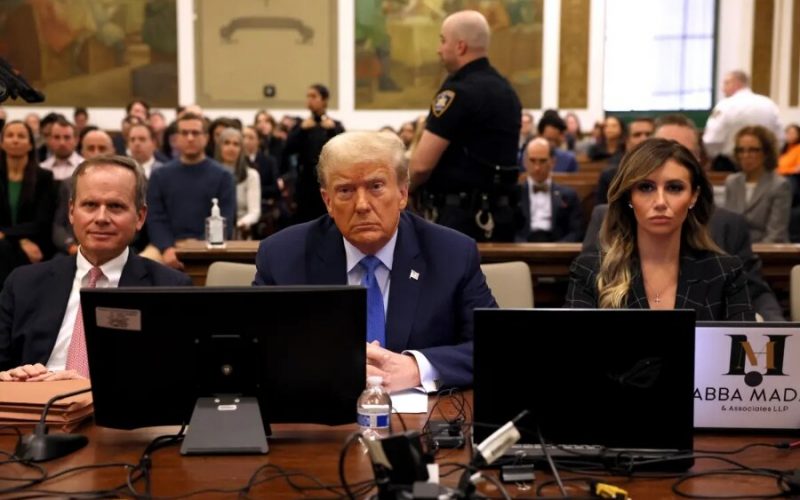On Monday, a federal district court in Rhode Island turned down a bid in an attempt to disqualify ex-President Donald Trump from running in the 2024 presidential elections, pointing to a previous decision by an appeals court that dismissed a similar claim.
Chief Judge John J. McConnell of the U.S. District Court in Rhode Island, on Monday, swiftly threw out a complaint filed by John Anthony Castro, a relatively unknown Republican presidential candidate from Texas. Castro’s complaint aimed to disqualify President Trump from the ballot.
This represented another loss for Mr. Castro, who, in the past few months, has initiated legal actions in over two dozen states, including the one in Rhode Island dismissed today, in an effort to prevent Trump from being on the ballot for the 2024 presidential election.
In his legal documents, Mr. Castro contends that President Trump, through his actions and statements linked to the Capitol breach on January 6, 2021, participated in an insurrection against the United States.
He argues that Trump should be ineligible for federal office under Section Three of the 14th Amendment.
This provision prohibits individuals who have “engaged in insurrection or rebellion” from holding office and, during its enactment in the 19th century, primarily applied to members of the Confederacy during the American Civil War.
Over the past few months, courts in Florida, Colorado, New Hampshire, Minnesota, and Michigan have rejected his arguments, primarily citing procedural or jurisdictional grounds.
This includes reasons like a lack of standing or the courts opting not to make rulings on political matters.
Judge McConnell’s decision on Monday came after a November 21 ruling on the identical issue, also initiated by Mr. Castro, from a higher court—the Court of Appeals for the 1st Circuit. Given the appellate jurisdiction of the appeals court over the Rhode Island District Court, its decisions carry authority and are binding on the lower court.
In the preceding decision, the appeals court upheld the lower court’s verdict and turned down Mr. Castro’s attempt to exclude President Trump from the 2024 presidential election ballot in New Hampshire.
The judges argued that Mr. Castro didn’t demonstrate an “injury in fact” — a necessary element for pursuing the case under Section Three.
They deemed Castro’s assertion that his votes might be impacted in the 2024 election (should President Trump run) as “too speculative” at the time he filed his complaint.
The appeals court also upheld the lower court’s rationale that the case involves a political matter outside the scope of issues that a court can adjudicate, though they did not provide further details on this aspect.
President Trump’s spokesperson, Steven Cheung, touted Monday’s ruling as a victory for the former president’s campaign.
“Earlier today, a federal judge in Rhode Island dismissed yet another frivolous 14th Amendment challenge to President Trump’s ballot eligibility in 2024,” Mr. Cheung wrote in a statement on President Trump’s campaign website.
“The American People have the unassailable right to vote for the candidate of their choosing at the ballot box, something the Democrats and their allies driving these cases clearly disagree with.
“President Trump believes the American voters, not the courts, should decide who wins next year’s elections and we urge a swift dismissal of all such remaining bogus ballot challenges.”
Share your thoughts by scrolling down to leave a comment.

